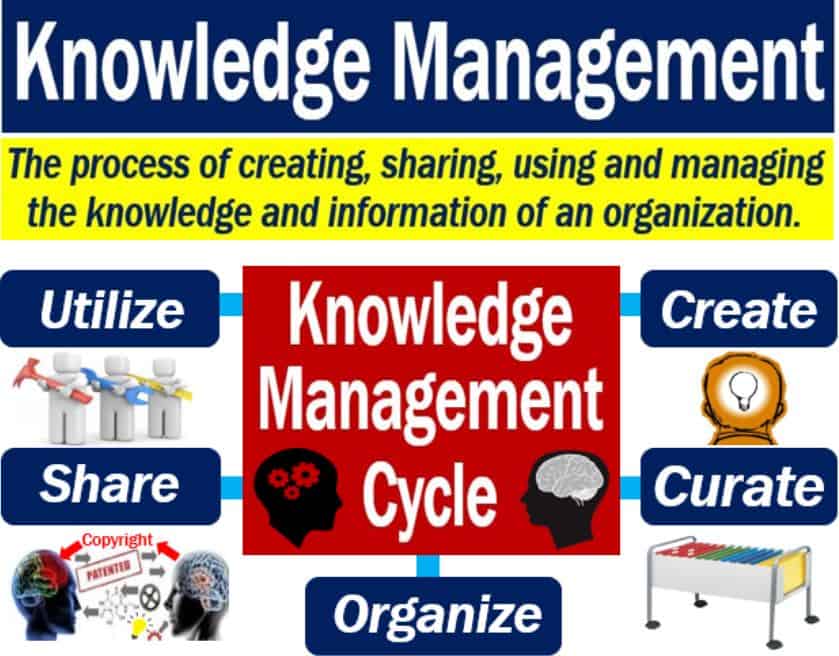Knowledge management refers to the processes and strategies that a company uses to identify, capture and structure its intellectual assets. It also includes the processes and strategies it uses to leverage, share, and value its knowledge capital. With the effective management of knowledge, companies aim to create value and meet tactical and strategic requirements.
Knowledge capital and intellectual assets have the same meaning. Knowledge capital includes the methods, valuable ideas, and other talents that a company or organization has.
The management of knowledge consists of the processes, initiatives, systems, and strategies that help the storage of knowledge. It also includes the assessment, refinement, sharing, and creation of knowledge.
The creation of knowledge is the transfer combination and conversion of different types of knowledge that learners learn, interact, and practice. We also call it knowledge creation.
To know where all a company’s knowledge is, it needs a knowledge map. The map also tells us where in the company certain experts, i.e., people with knowledge, are located.
Knowledge management – brief history
Knowledge management or KM has been an established discipline since 1991. Since then, it has become a subject that students of management, library studies, and information sciences and systems study.
It is also a subject that business administration, public policy, public health, media, and computer science students study.

Since 1991, institutions across the world have offered master’s degrees that focus on knowledge management.
The term ‘personal knowledge management,’ i.e., the management of knowledge at a personal level, emerged in 1999.
The Austrian-American management consultant Peter Drucker (1909-2005) was influential in all themes related to knowledge. Especially knowledge within companies and in the economy.
Ducker popularized the term Knowledge Economy in his 1969 book ‘The Age of Continuity.’
According to Ducker, economies are shifting towards the management and commercialization of knowledge. At first, we were hunter-gatherers. Then we became farmers.
A couple of hundred years ago the industrial revolution dramatically changed our economies. Today, the game changer is knowledge, knowledge creation, and knowledge management.
